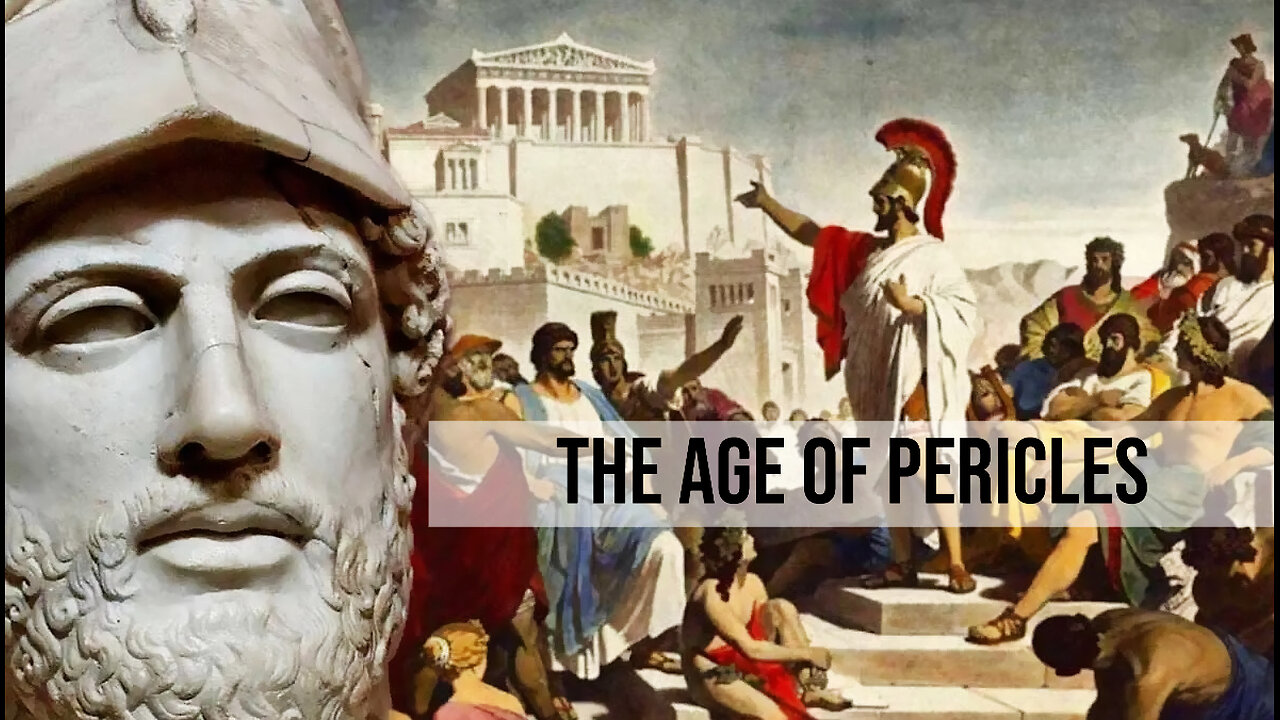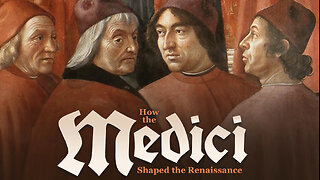Premium Only Content

The Age of Pericles | Socrates and the Sophists (Lecture 22)
Lecture 22: The defeat of Athens had enormous repercussions beyond simply the political life of the Athenians. This emerges with clarity in an examination of the career of Socrates. Before the defeat of Athens in the Peloponnesian War, Socrates was thought of as an absent-minded professor. He was the Athenians’ own version of the new breed of intellectual, known as the sophist. Though he did not take pay for his teaching, to most Athenians, Socrates was just like Protagoras and Gorgias, men who taught moral philosophy, linguistics, and eristics (the study of debate). Aristophanes, for example, shows him swinging from a basket and using hopeless academic jargon to create an exotic aura about his intelligence. All this would have been harmless, but for the fact that Athens underwent a period of upheaval after the defeat by Sparta. First, a repressive, pro-Spartan regime was installed; then, after a short civil war, the democracy was restored. Although the official policy was amnesty (literally, a “non-remembering” of misdeeds during the time of trouble), there were still many who had suffered when the democracy was suspended. Unfortunately, Socrates was the teacher of some of the men responsible for the suspension, and his trial should be seen as an act of political score-settling. Events at the end of the 5th century transformed Socrates from a harmless professor into a political scapegoat.
Suggested Reading:
Meier, Christian. Athens: A Portrait of the City in Its Golden Age. New York: Henry Holt, 1998.
Plato. The Apology. Trans. by Hugh Tredennick. Harmondsworth: Penguin, 1993.
Munn, M. The School of History: Athens in the Age of Socrates. Berkeley and Los Angeles: University of California Press, 2000.
Lecture 23: https://rumble.com/v5f0ylm-the-age-of-pericles-plato-lecture-23.html
-
 30:08
30:08
The Great Courses
1 month agoHow the Medici Shaped the Renaissance | The Godfather: Cosimo de' Medici (Lecture 3)
431 -
 2:08:01
2:08:01
The Quartering
5 hours agoElon Musk Has A MELTDOWN & Leaks DM's, Matt Walsh Vs OF Girls, & the WORST Video We've Ever Seen!
85.4K45 -
 44:54
44:54
Steve-O's Wild Ride! Podcast
5 hours ago $2.31 earnedMark Wahlberg Threatened To Beat Up Jackass Cast Member - Wild Ride #251
20.6K5 -
 LIVE
LIVE
tacetmort3m
7 hours ago🔴 LIVE - PUNISHING THEM ALL TO RANK UP - MARVEL RIVALS RANKED
126 watching -
 36:14
36:14
Capitol Spotlight
2 hours ago $0.33 earnedWho is Rep. Jim Jordan outside of Congress?
4.65K1 -
 3:34:16
3:34:16
SIEFE
5 hours agoRED DEAD REDEMPTION 2 LIVE!
43.5K3 -
 1:16:43
1:16:43
Russell Brand
6 hours agoHollywood Hypocrisy and Fighting Corruption: Rob Schneider Speaks Out! – SF521
102K83 -
 7:17
7:17
Rethinking the Dollar
5 hours agoTrump's Crypto Reserve Plan Shocks Everyone
20.3K3 -
 11:20
11:20
China Uncensored
7 hours agoRedNote: Americans Flock to Chinese App Ahead of TikTok Ban
23.9K13 -
 1:58:03
1:58:03
The Charlie Kirk Show
5 hours agoConfirmation Marathon: Day 3 | Sen. Scott, Plume | 1.16.2025
140K39